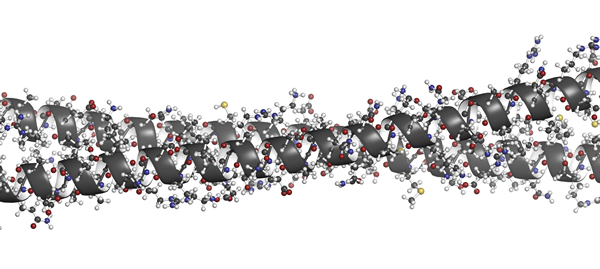NUTRITION FOR HEALTHY HAIR
Nutrition For Healthy Hair
Here’s how to fix damaged hair for the perfect selfie (today). If you’ve tried Alpecin or you’re taking propecia, hiding under a hat, you know healthy hair means a lot. There are quick fixes and longterm treatments. Ultimately having a healthy scalp is the starting point. To fix damaged hair you have to treat the cause(s).
The most common cause of hair loss is androgenic alopecia (AGA), also known as male pattern baldness or female pattern baldness. It’s an autoimmune disease: when our immune system attacks our own body. In this case, our hair follicles.
Hair restoration includes the medical and surgical treatment of various forms of hair loss. This includes non-surgical, minimally invasive cosmetic treatment techniques. These treatments can work well in the FOUR PHASES of nutrition for healthy hair.
NATUROPATHIC TREATMENT – PERSONALISED NUTRITION NATUROPATHIC PORTFOLIO FOR HAIR CARE
When we imagine running our fingers through our hair, we’ve an individual sense of how this should feel. How it shouldn’t feel. SUSANNAH is a SPEAKER @ FACE CONFERENCE UK JUNE 17 2017 *TOPIC* NUTRITIONAL SUPPLEMENTS FOR HAIR LOSS — IS THERE ANY PROOF?
A complete medical history, to include our family’s health history and a physical examination can help us find out the reason or reasons why we’re experiencing hair loss or hair thinning. It can be noticeable to ourselves and others but oftentimes it can be worrying when we’re not sure how this pattern will continue in weeks, months, years to come. The pattern and rate of hair loss, the appearance of nearby hairs, and accompanying symptoms are all considered when we look at the options available and how diet and lifestyle measures can help exactly.
How to fix damaged hair
SHORT AND LONG TERM MANAGEMENT
A step-by-step plan means that you’re able to look at the picture overall. You can see the goal and simple diet and lifestyle changes. You’ll be making these changes on a day-by-day basis.
Functional investigations provide data to optimise health and are a guideline for success rates of treatment.

Hair nutrition
Functional testing measures may or may not be necessary. This is all to be decided at consultation. It may not be suitable at this time. This is why we’ve built a strong referral network with specialists more suited to tackle particular hair loss concerns such as male pattern baldness etc.
Hair Nutrition
Naturopathic Hair Nutrition – Consultation and Treatment.
Hair Loss Genetics
In GENETICALLY SUSCEPTIBLE people, certain sex hormones trigger a particular pattern of permanent hair loss.
Hormone imbalance Hair Loss
Hormone imbalance can also cause temporary hair loss. This could be due to pregnancy, childbirth, discontinuation of birth control pills or the onset of menopause.
A variety of MEDICAL CONDITIONS can cause hair loss, including:
Thyroid problems
Alopecia areata
Scalp infections
Other skin disorders.
Hair loss can be accounted for as a side effect of medications for the treatment of:
Cancer
Arthritis
Depression
Heart problems
High blood pressure
Hair loss can also result from:
A physical or emotional shock.
Hair-pulling disorder
Certain hairstyles
Susannah helps you understand every stage in our management plan. The health benefits and aesthetically enhancing properties. Especially as these tend to become apparent last. This is in accordance with your individual requirements and unique profile.
The clinical consultation will be a time to ask questions. It could be the beginning of your health journey at Susannah Makram Clinics. We help you find realistic goals and understand exactly what we can do to achieve them.
Multidisciplinary intervention is discussed with you. Our highly qualified team; those offering highly specialised treatments or therapies, can be introduced into your programme at the right stage.
Camouflage or the application of any type of synthetic hair (wigs, extensions etc.) requires the knowledge and skill of experts such as microdermabrasion specialists etc. All support and information is given to you. Your personalised nutrition for healthy hair, your Naturopathic Portfolio must be comprehensible. It’s tailored with refinement and quality that ensures longevity. Can we help you? Ask us today.
Hair Transplantation Surgery
Surgical hair restoration is the only permanent technique that can move hair from permanent zone to the balding area. This involves redistribution of hair from one to another area of the same body.
Follicular Unit transplantation is the most common surgical technique. The back of the head is the same body site from which hair is redistributed around.
Follicular Unit Extraction is the most minimally invasive surgical method of hair redistribution whereby the procedure expands donor area (eg chest, leg etc.) allowing hair surgeons to harvest body hair for more natural consequences and less scarring.
Laboratory research by teams at Columbia University Medical Center (et al) in the US and Durham University in the UK have aimed to transform mature human skin cells into skin stem cells. These skin stem cells are capable of growing human hair and skin cells when transplanted into mice.
Results suggest an approach for generating large numbers of human EpSCs (Epithelial Stem cells) for tissue engineering. Also, new treatments for hair loss, wound healing and other degenerative skin disorders are on the horizon.
While this technique appears to have the potential to transform the treatment of hair loss, there’s a lot of work still to be done before it can be tested in humans.
NON-SURGICAL OPTIONS
MEDICATION
Minoxidil – an antihypertensive, vasodilator, over-the-counter medication r to stop hair loss or promote hair regrowth.
Propecia (finasteride) is approved as a prescribed medical hair restoration for men with AGA. However, the drug does come with side-effects.
